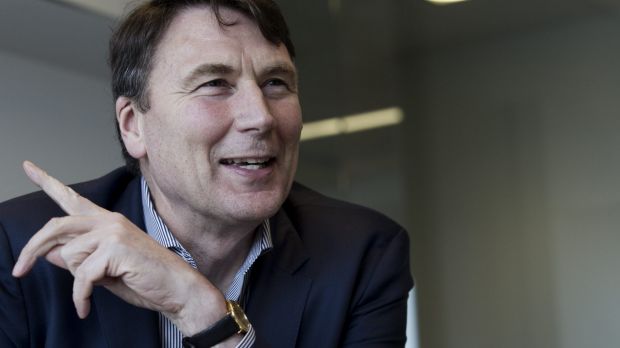In the next two weeks, a Sydney man will board a flight to Vanuatu with a suitcase that could change millions of lives and lead to thousands of jobs for Australia.
But maybe not. The jobs could go to China. "It's an open question" says Ian Scrivener, on whose desk in Sydney's Chinatown the contents of the suitcase are being "manufactured".

Mr Scrivener wrote his ticket as a start-up entrepreneur in the early 1990s with one of Australia's pioneering web service companies, boasting big clients such as Toyota and Microsoft. In his non-profit start-up venture cleverHeart he plans to "make Australian technology that can positively impact hundreds of millions of peoples' lives with clean energy".
As the enterprise scales up, he'd like to make its products in Australia. "There will be thousands or tens of thousands of jobs to fill the market we are talking about." But whether the jobs stay in Australia depends on a "deep commitment from government" to address macroeconomic issues, such as the "logistics and paperwork and the taxation side" that help make our export prices for electronic components up to 20 times higher than China's, Mr Scrivener says.

It's just the kind of criticism the NSW government says it wants to hear. Jobs for NSW, the private-sector led, government-backed agency charged with turbocharging NSW employment growth, is launching a "Born Global" campaign to support companies such as cleverHeart approach world markets. It reckons Asia is "ripe" for NSW and Sydney start-ups, with massive opportunities for businesses in sectors from education to fintech, tourism and food.
Small to medium enterprises such as cleverHeart make up just 6 per cent of NSW firms but have created 1 million jobs for the state in the past six years, according to Jobs for NSW research. It could "dramatically accelerate" if more start-ups and SMEs were ready to "go global" with an export focus from day one, according to chairman David Thodey.
"We need a global mindset," he will tell a Thursday start-up function at Haymarket HQ, the NSW government-funded Asia Innovation Hub in Sydney's Chinatown. The agency, founded in 2015 with $190 million to spend, "wants to understand more about what may be getting in the way, so we can be more proactive", Mr Thodey says.
In the latest Compass Global Start-up Ecosystem Ranking, Sydney slipped from 12th to 16th place. The city is "not where it needs to be in terms of global rankings", says Jobs for NSW chief executive Karen Borg. "We have to encourage people to be more expansive in their thinking."

The suitcase headed for Vanuatu will carry a couple of dozen "smart meters", the first shipment of the company's prototype product that monitors and controls household clean energy usage, sending data over the internet to service providers and allowing them to charge on a PAYG basis.
It's a "little box of full of electronics, with wires in one end and out the other", says Mr Scrivener.

With four employees based at Haymarket HQ, cleverHeart is targeting developing countries where 1.3 billion people still live without electricity and 2 billion still cook with fossil fuels or biomass such as charcoal, wood or dung. They may be unable to pay the up-front cost of solar panels but they can manage a regular electricity bill, says Mr Scrivener.
The monitoring data is also important to the aid organisations that fund the infrastructure, he says. "They want the money spent well, and the evidence to show for it."
There will be thousands or tens of thousands of jobs to fill the market we are talking about.
Ian Scrivener
It would be "great" if the local manufacturing facilities and jobs being lost to car-making can "pivot, so instead of losing jobs in South Australia they manufacture our printed circuit boards", he suggests. But that can't happen without adjustment to macroeconomic policy, he says. Off Grid Electric, a company backed by Elon Musk's Solar City, is "right in this space", says Mr Scrivener. Another option is to "license to those guys to get the scale we want to achieve", he says.
Countries like Vanuatu, East Timor, Fiji, Papua New Guinea and Indonesia are "primed for solar" with the "plummeting" solar price worldwide, an abundance of sunlight and low solar take-up relative to sub-Saharan Africa, where "Europe has really led the way", says Mr Scrivener. By contrast Australia is "a decade behind" in facilitating the uptake of such technologies in its region, he says.

0 comments
New User? Sign up